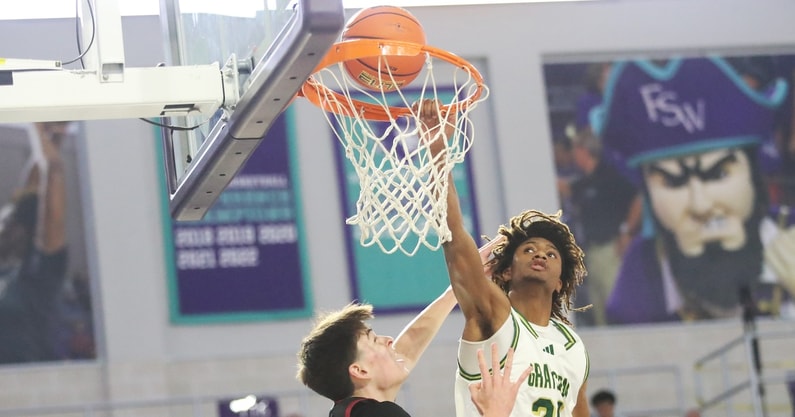Georgia High School Association making changes to transfer bylaws

In the age of the NCAA Transfer Portal the effects of player movement have trickled down to the high school level, and Georgia’s state association is implementing new rules in response.
According to WJBF-9, The GHSA’s Board of Trustees overwhelmingly approved a revision to GHSA bylaw 1.60, which requires additional proof that an athlete has physically relocated to ensure the transfer move is bonafide, thus allowing for immediate eligibility at the varsity level.
The new requirements include:
-The complete vacating of the student’s original residence, including a disconnection of “all unnecessary utilities.”
-All licensed drivers in the student’s household most comply with Georgia DMV change of address policy with schools having to provide copies of the updated driver’s licenses with the new address.
-The student’s previous residence must not be used or occupied by any member of the family unit.
-The student’s previous residence must either be sold or listed for sale, or the lease must be cancelled, and copies of listing agreements, contracts for sale or lease cancellation must be provided.
-Change of address notification must be made to all employers, appropriate agencies and creditors.
Twelves of the 13 members of the Board of Trustees voted in favor of the change.
Multi-time transfers will have to sit out
In addition to the more stringent proof-of-residency requirements, high school athletes who change schools more than once after the ninth grade will be ineligible for competition for a full calendar year.
“We’re an education-based organization, and we want to make sure that when student-athletes move, they’re not moving for athletic purposes,” GHSA executive director Tim Scott told the Atlanta Journal-Constitution. “Situations change, and families move due to job changes or whatever, so we’ve added a few things to make sure it’s not just for athletics.”
Top 10
- 1New
Ed Orgeron
Takes issue with Alabama fan
- 2Hot
Zakai Zeigler
Ruling made on eligibility
- 3
ACC - SEC Challenge
2025 Matchups Set
- 4Trending
Vince Marrow
First public comments
- 5
CFB Top 25
ESPN releases future rankings
Get the On3 Top 10 to your inbox every morning
By clicking "Subscribe to Newsletter", I agree to On3's Privacy Notice, Terms, and use of my personal information described therein.
In recent years, the number of transfers has spiked, with Scott estimating that roughly 59,000 of the GHSA’s approximately 460,000 athletes — about 1 in 8 — were transfers during 2024-25. That included some of the most high-profile names in basketball and football. Jacob Wilkins, the son of NBA legend Domonique Wilkins, played at three different high schools during his four-year career before signing to play basketball at Georgia.
Top 2027 football recruit LaDamion Guyton has only transferred once — but moved this winter from Savannah Christian to Benedictine.
The updated rules would not penalize Guyton for his move, but he would be subject to the multi-time transfer penalty if he chooses to attend another school in the state. Moves like Wilkins’ almost certainly would no longer happen with the ineligibility rule going into place.
A hardship appeals process will be available for student-athletes making the case their transfer move is due to legitimate reasons, but will be scrutinized more heavily if they are transferring for a second or third time.